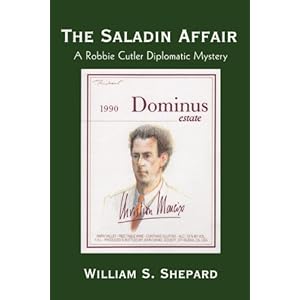Version française en-dessous
For academic
purposes, I am currently reading the books of British female travellers in the
years 1850-1910. One of them is Gertrude Bell, a writer, diplomat, spy, and archaeologist
who published Syria: the Desert and the
Sown in 1907. Her life and her role in the shaping of the modern Middle East obviously remind us of T.E.
Lawrence. The reading of her book is of great literary and cultural interest. Besides
this, it sheds light on Syria’s tragic plight today. Below is an
excerpt on civil wars and how to end them…
Mes recherches me conduisent à lire en ce moment les récits de voyageuses britanniques des années 1850-1910. Parmi elles, Gertrude Bell (1868-1926), dont la vie d'écrivaine, diplomate, agent secret, archéologue, est un roman en soi. L'un de ses livres s'intitule Syria: the Desert and the Sown (1907). Sa lecture est passionnante, littérairement, culturellement, et parce qu'il nous plonge aux sources de la fabrication politique du Moyen-Orient moderne par les puissances coloniales ; à l'instar de son contemporain T.E. Lawrence (d'Arabie), autre espion-écrivain, elle contribua à forger l'Irak et la Jordanie d'une manière qui pèse encore aujourd'hui sur la géopolitique de la région. Voici un extrait (en anglais) de ce livre qui éclaire à bien des égards la situation tragique que connaît la Syrie aujourd'hui ; il s'agit des guerres civiles et des moyens d'y mettre terme...
The muleteers and I listened with breathless interest as one story succeeded another.
"There are good customs and bad among the Arabs," said Namrud, "but the good are many. Now when they wish to bring a blood feud to an end, the two enemies come together in the tent of him who was offended. And the lord of the tent bares his sword and turns to the South and draws a circle on the floor, calling upon God. Then he takes a shred of the cloth of the tent and a handful of ashes from the hearth and throws them in the circle, and seven times he strikes the line with his naked sword. And the offender leaps into the circle, and one of the relatives of his enemy cries aloud : 'I take the murder that he did upon me!' Then there is peace. Oh lady! the women have much power in the tribe, and the maidens are well looked on. For if a maiden says : 'I would have such an one for my husband,' he must marry her lest she should be put to shame. And if he has already four wives let him divorce one, and marry in her place the maiden who has chosen him. Such is the custom among the Arabs."








